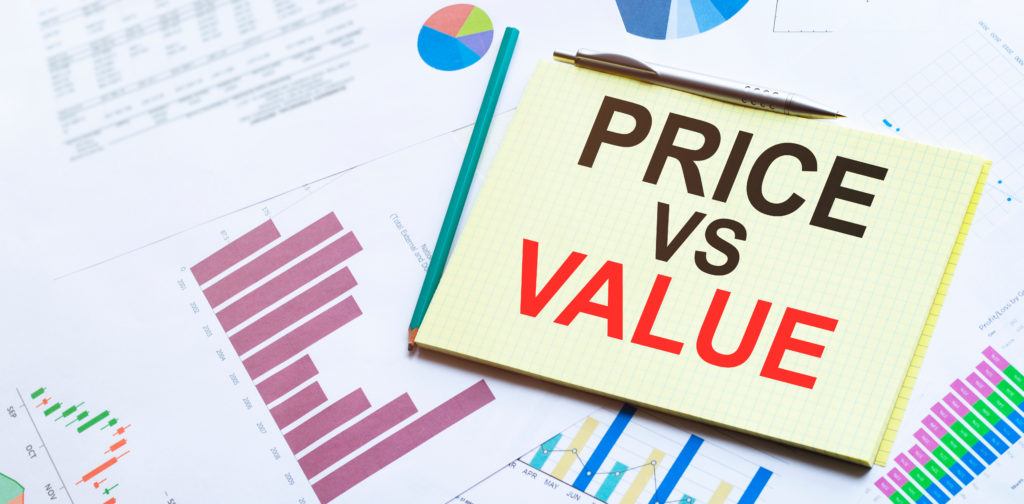
Oscar Wilde once said “A cynic is someone who knows the price of everything and the value of nothing”.
A lot of FBA sellers focus on price. They use automatic repricers, they try to undercut their competition, and they believe price is what’s going to get them sales.
In fact, buyers are looking for value, not price. If someone doesn’t have a cat, they don’t want to buy a cat toy at any price. If they do have a cat, and it only plays with catnip fish toys, they will only buy catnip fish toys. The value lies in the fact that choosy cat will play with it.
They might try other toys, but they feel they’re taking a risk. Choosy cat may not like it. So they’ll want to pay a low price to reflect that risk. If you happened to have a discount offer, they might be tempted.
With fashion goods, buyers might look for one of two different kinds of value. A woman who knows she looks good in black might see an asymmetrical cut black linen dress and instantly see that it’s going to make her look amazing. That’s the value to her. It’s personal. On the other hand a lot of buyers want to be in the trend, or they want to buy a particular designer brand so they can show that they own it. That’s a social value, in some ways.
The interesting fact here is that for some designer brands, sending the message “I’m rich enough to afford it” is part of the value. Of course, someone who’s not quite rich enough to afford it will jump at the chance to buy it in a sale. But if there are too many sales, the original buyers may feel the brand has been devalued; anyone can buy it now, and that exclusive appeal has gone.
Let’s think about another instance of value, the Swiss Army Knife. These are genuinely all-in-one tools which can open beer and wine bottles, fix loose screws, cut and file your nails, whittle or saw through wood, cut wire and get stones out of your horse’s hooves.
Their value is that you have one small tool which isn’t difficult to carry around and which can easily get you out of a fix. And they’re also known to be reliable and high quality. So they sell at a reasonably high price.
But some products that try to do everything just don’t sell. A fridge that’s integrated with your home entertainment system? Would you actually pay extra for that? Back in the old days before the internet, one telecoms company produced a component that could be both a router and a modem. That allowed a network engineer to order inventory without knowing how many of each they’d need, which was convenient.
The trouble was, it cost three times as much as either an ordinary router or an ordinary modem. The concept was great, but the price was way out of kilter. Of course, eventually component prices came down and now we all have little boxes that do both jobs sitting in our homes.
And then there are over-engineered products. For instance, a juicer selling at $400 that had all kinds of intriguing bells and whistles, but was actually slower than juicing your oranges by hand. The price, here, is higher than the value.
So when you’re setting your prices, do some hard thinking about the relationship between your price and the value that the product delivers to the buyer.
Of course, you might then want to offer a discount to give a very special extra value to the buyer or to get a product off to a good start. In which case, Vipon will be happy to help!